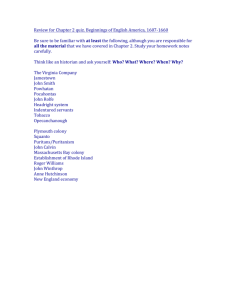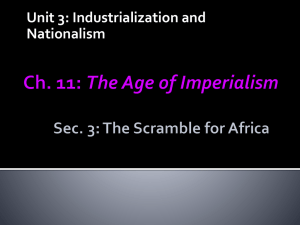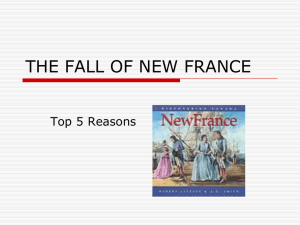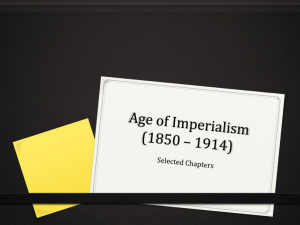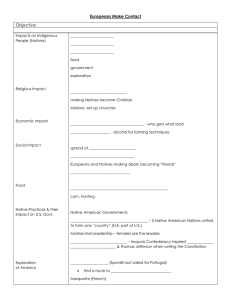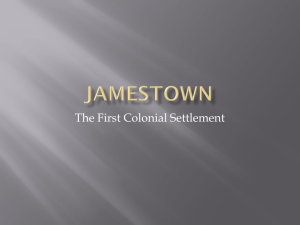Modern CFR Quiz 3 – THE FINAL INFLICTION. GOOD LUCK!
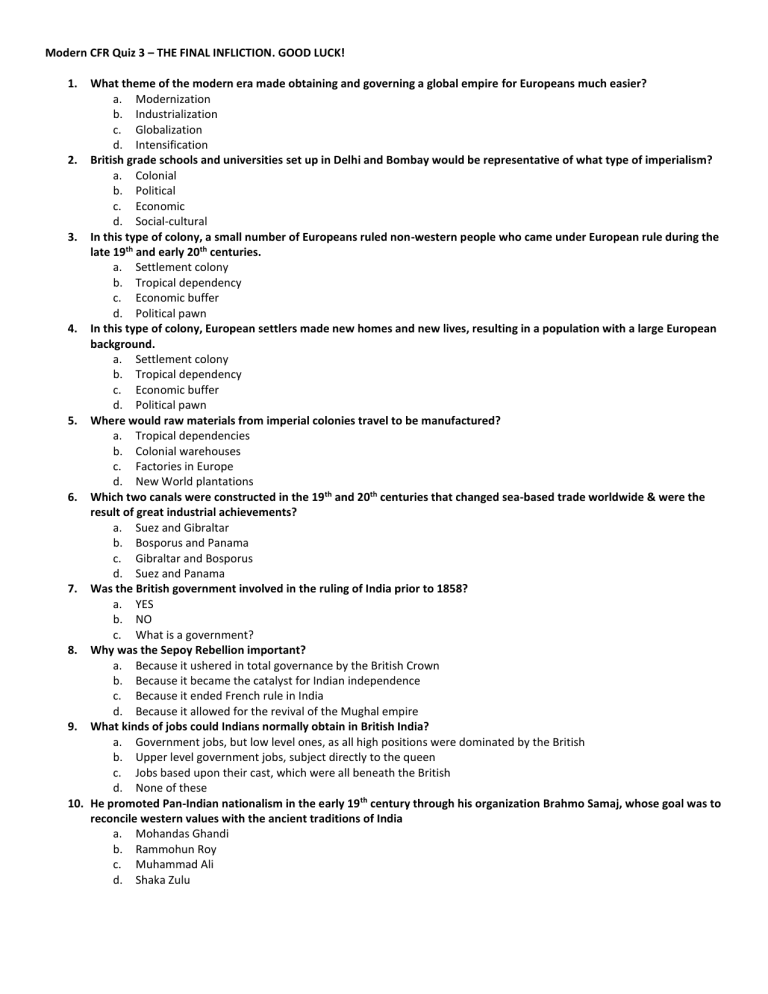
Modern CFR Quiz 3 – THE FINAL INFLICTION. GOOD LUCK!
1.
What theme of the modern era made obtaining and governing a global empire for Europeans much easier? a.
Modernization b.
Industrialization c.
Globalization d.
Intensification
2.
British grade schools and universities set up in Delhi and Bombay would be representative of what type of imperialism? a.
Colonial b.
Political c.
Economic d.
Social-cultural
3.
In this type of colony, a small number of Europeans ruled non-western people who came under European rule during the late 19 th and early 20 th centuries. a.
Settlement colony b.
Tropical dependency c.
Economic buffer d.
Political pawn
4.
In this type of colony, European settlers made new homes and new lives, resulting in a population with a large European background. a.
Settlement colony b.
Tropical dependency c.
Economic buffer d.
Political pawn
5.
Where would raw materials from imperial colonies travel to be manufactured? a.
Tropical dependencies b.
Colonial warehouses c.
Factories in Europe d.
New World plantations
6.
Which two canals were constructed in the 19 th and 20 th centuries that changed sea-based trade worldwide & were the result of great industrial achievements? a.
Suez and Gibraltar b.
Bosporus and Panama c.
Gibraltar and Bosporus d.
Suez and Panama
7.
Was the British government involved in the ruling of India prior to 1858? a.
YES b.
NO c.
What is a government?
8.
Why was the Sepoy Rebellion important? a.
Because it ushered in total governance by the British Crown b.
Because it became the catalyst for Indian independence c.
Because it ended French rule in India d.
Because it allowed for the revival of the Mughal empire
9.
What kinds of jobs could Indians normally obtain in British India? a.
Government jobs, but low level ones, as all high positions were dominated by the British b.
Upper level government jobs, subject directly to the queen c.
Jobs based upon their cast, which were all beneath the British d.
None of these
10.
He promoted Pan-Indian nationalism in the early 19 th century through his organization Brahmo Samaj, whose goal was to reconcile western values with the ancient traditions of India a.
Mohandas Ghandi b.
Rammohun Roy c.
Muhammad Ali d.
Shaka Zulu
11.
By 1898 (the end of the Spanish-American War), which of the following non-Eastern powers DID NOT have territory in
South East Asia? a.
British b.
Americans c.
Spanish d.
Dutch e.
French
12.
The British came into power in Egypt as a result of a.
Egypt falling into too much debt, borrowing excessively from Europeans for internal improvements b.
A war fought against Muhammad Ali, one that the British won c.
Because of French ineptitudes in ruling Egypt d.
Egypt desiring a western power to come in and overthrow the Ottoman influence in their country
13.
Algeria was a ____________ colony in North Africa. a.
Dutch b.
British c.
French d.
Portuguese
14.
What was the cause of the ‘Great Trek’ by Dutch Boers in the early to middle 1800’s? a.
The discovery of oil & diamonds along the South African coast b.
Overbearing British control in South African port cities, forcing Boers to move towards the interior c.
Pressure from the Zulu kingdom for the Boers to join in their resistance to the British d.
None of these.
15.
This British entrepreneur moved into the Orange Free State in South Africa, hoping to profit from the diamond and mineral trade. a.
Edward De Beers b.
Cecil Rhodes c.
Frank Transvaal d.
Henry Stanley
16.
The Berlin Conference was called in 1884 to address the _______________________ in Europe, and how Europe was to expand into Africa. a.
Inequalities provided by capitalism b.
Economic changes c.
Industrialization d.
Balance of power
17.
What two African nations were the only two to resist European imperialism after Berlin? a.
Ethiopia and South Africa b.
Kenya and Ethiopia c.
Liberia and Ethiopia d.
Niger and Ethiopia
18.
What purpose did small islands in the Pacific serve for European powers? a.
They were full of resources to be tapped by industrialized European businesses b.
They were refueling stations for steam-powered navies c.
They were air bases for growing air forces d.
They were claimed so that no one else would claim them, and served little purpose
19.
Indentured servants a.
Moved from their home country to growing imperialist countries, where labor was greatly needed b.
Died off from backbreaking labor working for imperialist powers c.
Were enslaved shortly after their arrival in their new country d.
None of these
20.
One great social change of this era a.
Was found in relations between Natives and imperial powers as Natives gained great social prestige b.
Was in Social Darwinism, as Natives were seen to be superior to their European non-natives c.
Was for women, as they found more educational opportunities than before in colonies and at home d.
Was for the poor, as many European entrepreneurs used their profits to cure the suffering of the poor
